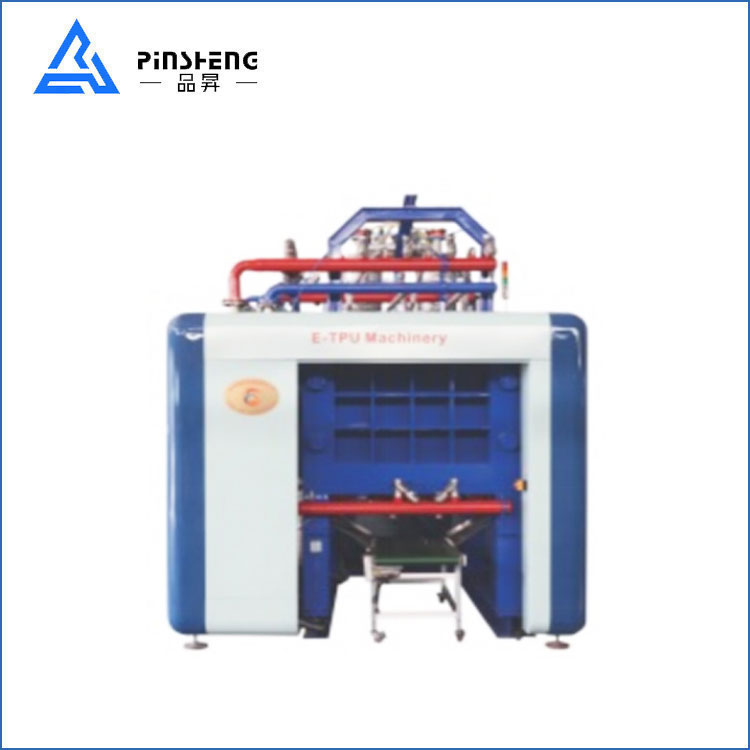ETPU Machine: Revolutionizing the Manufacturing Industry
2025-03-22
In the world of advanced manufacturing, the ETPU machine plays a pivotal role in producing high-quality, durable, and sustainable products. ETPU, or Expanded Thermoplastic Polyurethane, is a versatile material used in various industries, from automotive to footwear, and its demand continues to rise due to its excellent properties. The ETPU machine is designed to produce this material efficiently, and in this blog, we will explore what an ETPU machine is, its working principles, and the benefits it offers to manufacturers.
What is an ETPU Machine?
An ETPU machine is a specialized piece of equipment used to produce expanded thermoplastic polyurethane, a material known for its flexibility, durability, and lightweight characteristics. ETPU is made by processing thermoplastic polyurethane (TPU) pellets through a combination of heat, pressure, and expansion agents. The result is a foam-like material that is highly resilient, offering both cushioning and strength.
The ETPU machine works by melting and processing TPU pellets in a controlled environment, allowing for the introduction of expansion agents. These agents create a foaming effect, which results in a lightweight, flexible product that maintains the integrity of the original material.
How Does the ETPU Machine Work?
The working process of an ETPU machine involves several steps to create the expanded product:
1. Feeding the TPU Pellets
The first step involves loading the TPU pellets into the ETPU machine. These pellets are the raw material from which the expanded product will be formed.
2. Melting and Extrusion
The pellets are then heated to a molten state within an extruder. The extruder is a key component that pushes the molten TPU through a die, shaping the material and allowing for the addition of the expansion agents.
3. Addition of Expansion Agents
Expansion agents are added during the extrusion process. These agents trigger a chemical reaction that causes the TPU to expand, forming a foam-like structure. This process is carefully controlled to ensure the desired expansion ratio and material properties.
4. Cooling and Solidifying
After the TPU has expanded, it is cooled and solidified, taking on its final form. The material now has a lightweight, durable, and flexible texture that is ideal for use in a variety of applications.
5. Shaping and Cutting
The expanded TPU can then be shaped into different forms, such as sheets, rolls, or other custom shapes, depending on the intended use. Once the material has been shaped, it is cut into the desired size and is ready for use in manufacturing.
Applications of ETPU
ETPU is used in a wide range of industries due to its excellent properties. Some of the most common applications include:
1. Footwear Industry
One of the most popular uses for ETPU is in the production of shoe soles. The lightweight and flexible nature of ETPU makes it ideal for creating cushioned and comfortable shoe soles, especially in running shoes, athletic footwear, and casual shoes.
2. Automotive Industry
ETPU is used in automotive applications, including seating, interior components, and sound insulation. Its ability to absorb shock and reduce noise makes it a valuable material for improving the comfort and safety of vehicles.
3. Sports Equipment
ETPU is commonly found in sports equipment such as helmets, protective padding, and sports footwear. The material’s impact-absorbing properties provide added safety and comfort for athletes.
4. Packaging Materials
ETPU’s lightweight and durable nature makes it a great material for protective packaging. It can be used in packaging fragile items, ensuring they are cushioned and protected during shipping.
5. Medical Devices
The flexibility and biocompatibility of ETPU make it suitable for use in medical devices, such as cushioning for prosthetics and orthopedic devices. Its durability and ability to conform to different shapes add to its value in the medical industry.
Benefits of Using an ETPU Machine
The ETPU machine offers several benefits to manufacturers who use it to produce expanded thermoplastic polyurethane. Some of these advantages include:
1. Efficiency
The ETPU machine allows for high-speed production, ensuring that manufacturers can produce large quantities of material in a relatively short amount of time. The automated nature of the machine reduces the need for manual labor and increases production efficiency.
2. Customization
Manufacturers can customize the properties of the expanded TPU based on the specific needs of their products. By adjusting factors like the expansion ratio, material thickness, and density, the ETPU machine offers versatility in producing a wide range of products.
3. Cost-Effective
ETPU machines are designed to minimize waste and optimize material usage. By producing a high-quality product with minimal scrap, manufacturers can reduce costs and improve their bottom line.
4. Sustainability
As an environmentally friendly material, TPU is recyclable, and the ETPU machine helps reduce waste. The efficiency of the production process also ensures that energy and resources are used effectively, making it a sustainable choice for manufacturers focused on reducing their environmental impact.
5. Superior Material Properties
The ETPU produced by these machines offers excellent shock absorption, resilience, and flexibility, making it ideal for a variety of high-performance applications. This enhances the quality and durability of the end products, whether they are shoes, automotive parts, or sports equipment.
Conclusion
The ETPU machine has revolutionized the production of expanded thermoplastic polyurethane, a material valued for its durability, flexibility, and lightweight properties. By utilizing an ETPU machine, manufacturers can create high-quality products in a cost-effective, efficient, and sustainable manner. Whether in the footwear, automotive, medical, or packaging industries, the versatility of ETPU continues to make it a go-to material for various applications.
As the demand for high-performance materials grows, the ETPU machine stands out as a critical tool in modern manufacturing, enabling businesses to meet the needs of their customers while staying ahead in a competitive market.



